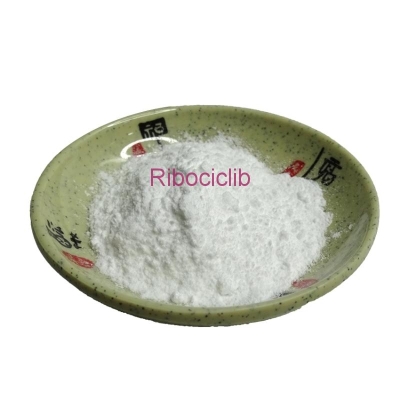-
Categories
-
Pharmaceutical Intermediates
-
Active Pharmaceutical Ingredients
-
Food Additives
- Industrial Coatings
- Agrochemicals
- Dyes and Pigments
- Surfactant
- Flavors and Fragrances
- Chemical Reagents
- Catalyst and Auxiliary
- Natural Products
- Inorganic Chemistry
-
Organic Chemistry
-
Biochemical Engineering
- Analytical Chemistry
- Cosmetic Ingredient
-
Pharmaceutical Intermediates
Promotion
ECHEMI Mall
Wholesale
Weekly Price
Exhibition
News
-
Trade Service
Zhang Jinfang's research group has made new progress in the field of tumor immunotherapy
Zhang Jinfang's research group has made new progress in the field of tumor immunotherapyOn March 31, 2022, Nature Communications published the latest achievements in the field of tumor immunotherapy by Professor Zhang Jinfang's research group from Wuhan University Medical Research Institute, Zhongnan Hospital Medical Research Institute, and Frontier Science Center for Immunology and Metabolism
.
This study revealed the molecular mechanism by which inhibition of deubiquitinating enzyme USP8 remodels the tumor immune microenvironment (TME), turning "cold tumors" into "hot tumors", thereby improving the effect of tumor immunotherapy
The paper is titled "USP8 inhibition reshapes an inflamed tumor microenvironment that potentiates the immunotherapy" (inhibition of deubiquitinase USP8 reshapes the tumor immune microenvironment and enhances the effect of immunotherapy).
Xueliang Gao of Medical University is the first author, Professor Zhang Jinfang and Professor Haizhen Wang of Medical University of South Carolina are the corresponding authors, and Wuhan University is the first author and communication unit
.
Clinical studies have shown that in general, only about 30% of tumor patients are effective against PD-1/PD-L1 immune checkpoint blocking antibody drugs
.
Therefore, how to improve the therapeutic effect of PD-1/PD-L1 antibody on tumor patients is one of the clinical problems to be solved urgently
According to the response of tumor patients to immunotherapy, tumors can be roughly divided into cold tumors, hot tumors, and tumor types in between
.
The immune microenvironment of cold tumors is usually characterized by low or no expression of PD-L1, inactivation of the interferon (IFN) pathway, and defective antigen presentation, and these patients are basically unresponsive to tumor immunotherapy
The research group and collaborators found that by inhibiting the function of the deubiquitinase USP8, the immune microenvironment can be remodeled, so that cold tumors can be transformed into hot tumors, thereby significantly improving the immune checkpoint PD-1/PD-L1 antibodies to tumors.
therapeutic effect
.
As shown in the figure below: On the one hand, inhibition of USP8 can enhance TRAF6-mediated PD-L1 K63-linked ubiquitination modification and antagonize PD-L1 K48-linked ubiquitination modification, thereby upregulating PD-L1 protein level; On the other hand, inhibition of USP8 can also significantly upregulate the level of major histocompatibility complex-1 (MHC-1) on the surface of tumor cells and the activity of tumor-infiltrating CD8+ T lymphocytes by activating the NF-κB signaling pathway, thereby remodeling Tumor immune microenvironment
This study was supported by Academician Shu Hongbing, Professor Hu Mingming, Professor Zhang Haojian, and Professor Zhong Bo from the Medical Research Institute of Wuhan University, Professor Xie Conghua from Zhongnan Hospital of Wuhan University, Professor Chen Gang from the Stomatological Hospital of Wuhan University, and Professor Wenyi Wei and Professor Gordon J.
Freeman of Harvard Medical School.
Advice and help
.
This research also received strong support from the Instrument and Equipment Sharing Center and the administrative team of the Medical Research Institute of Wuhan University
Professor Zhang Jinfang is mainly engaged in the research of tumor immunotherapy.
In 2018, he published in Nature the molecular mechanism of the cell cycle kinase CDK4/6 and the ubiquitin E3 ligase Cullin3/SPOP regulating the immune checkpoint PD-L1.
The mouse tumor model confirmed that the combination of CDK4/6 inhibitor and PD-1/PD-L1 antibody can significantly improve the therapeutic effect of tumor
.
Importantly, multiple clinical trials of this antitumor combination approach are underway (ClinicalTrials.
leave a message here







